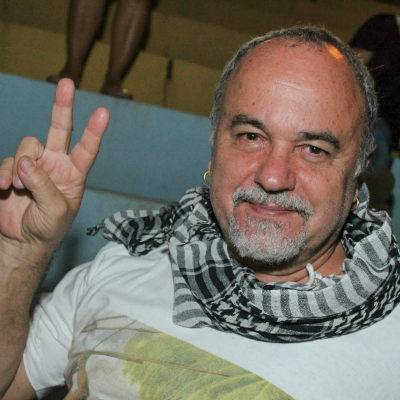Since 1989, it has been a member of the Ministry of Heath’s National Commission to Control AIDS, and since 1995 it has been one of the coordinators of the Secretariat of Human Rights of the Brazilian Association of Gays, Lesbians and Transvestites.
Luiz Mott is an anthropologist and historian and founder of Grupo de Bahia. Fondly known as the dean of the LGBTI movement in Brazil, Mott is a leading global thinker and writer on queer rights.
His activism began when he to Bahia in the northeast of Brazil in 1980, “I was punched by a cowardly homophobe as I walked with my boyfriend along a public plaza. I was angry and looked for a policeman in vain. It was this fist that aroused my desire to become a gay militant,” Mott says.
“This was a complete change in my self-identity. I had been a Dominican seminarian throughout my adolescence, and when I left the monastery I studied the Social Sciences and anthropology in particular. During this time I began to think of myself as an atheist inspired by the teachings of Christ.”
“In the early days of the homosexual movement in Brazil, our main efforts were to come out of the closet, found activist groups all over Brazil, fight against institutional homophobia which insisted on labeling us sick and marginal, using vulgar terms to refer to our community,” notes Mott.
After founding Grupo de Bahia in 1980 Brazil threw off decades of military dictatorship and the society became more open and accepting of LGBTI people.
But, today Brazil is an extremely contradictory country for LGBTI rights. “It hosts the biggest LGBTI pride celebration in the world, with the largest out LGBTI population in Latin America and it has approved the homosexual marriage,” says Mott. “At the same time it has the largest number of cruel murders of gays and transvestites in the world. Every 26 hours there is a ‘homicide’, 338 in past year.”
“In addition to cultural homophobia, which weakens and increases the vulnerability of LGBTI people, we suffer from the government’s current homophobia. From north to south, politicians organize protests of gay pride celebrations and veto the distribution of anti-homophobia kits, which could have enabled more than 6 million young people to respect sexual diversity,” says Mott.

